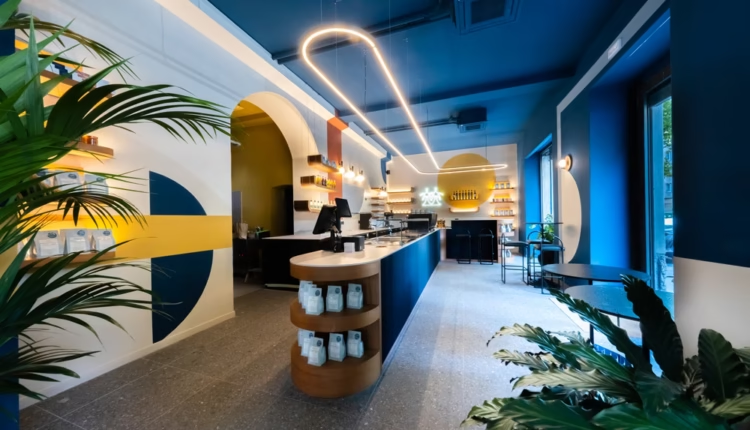Pioneering Specialty Coffee in Milan: A Look at Cafezal Milano
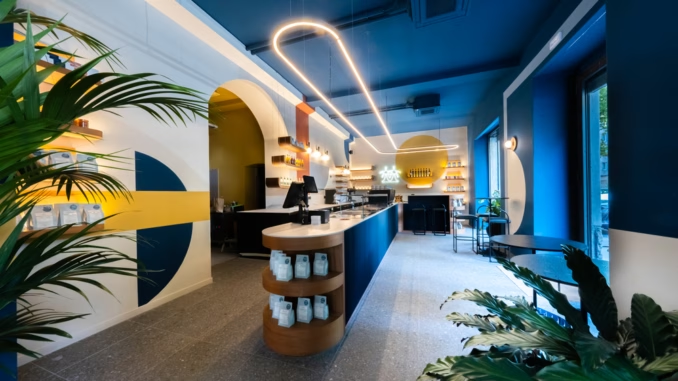
Carlos Eduardo Bitencourt shares his experience running Northern Italy’s first specialty coffee chain.
BY ISABELLE MANI
BARISTA MAGAZINE ONLINE
Photos courtesy of Cafezal Milano
Cafezal, which translates to “coffee farm” in Brazilian Portuguese, is responsible for a trifecta of firsts in the Milanese coffee scene. It’s Milan’s first specialty small-batch roastery, and it operates the Milano Coffee Academy: the city’s first specialty coffee training center. And perhaps most notably, it’s also the first specialty coffee chain in Northern Italy.
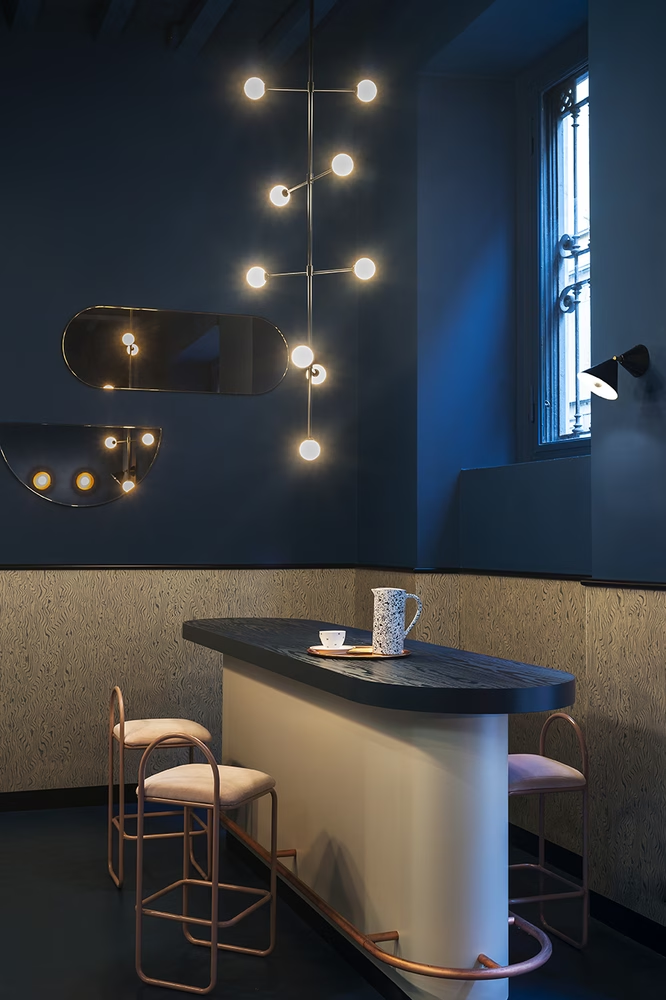

It was around 2014 that Carlos Eduardo Bitencourt, a Brazilian-born industrial engineer with Italian ancestry and dual citizenship, started engaging more deeply with coffee. At the time, he was living between London and Milan, working in strategic consulting. Coffee had already become a personal passion, and during visits to Brazil, he took the opportunity to explore coffee farms in southern Minas Gerais, gaining firsthand experience with specialty coffee production. Back in Europe, he enrolled in roasting courses at the London School of Coffee, deepening his expertise.
In 2017, he opened the first Cafezal location, a boutique café in a modern residential district of Milan. In the beginning, locals were friendly but skeptical. “They would say, ‘I like you, but I think you’re going to fail. Italians will never pay more than 1 euro for a coffee. There’s no real need for ‘better quality’ coffee,” Carlos told Barista Magazine.
Today, those same people are among his most loyal customers and played a key role in spreading the word about Cafezal, bringing in young professionals, families, and senior citizens.
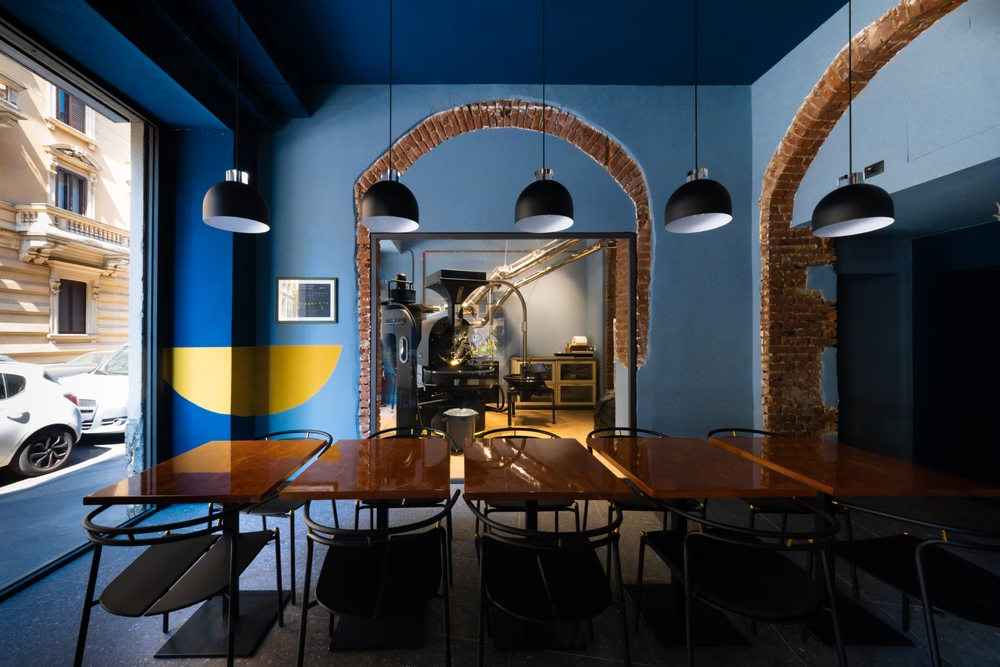

The brand has since evolved steadily, and today, Cafezal operates five locations in Milan, with ambitious expansion plans both within Italy and abroad. In addition to its cafés, Cafezal works with over 40 wholesale clients, runs a fast-growing e-commerce platform, and has a strong presence in events and catering across Italy.
For more context on the growth of specialty coffee culture in Italy, read our introductory article here.
Q&A with Carlos Eduardo Bitencourt
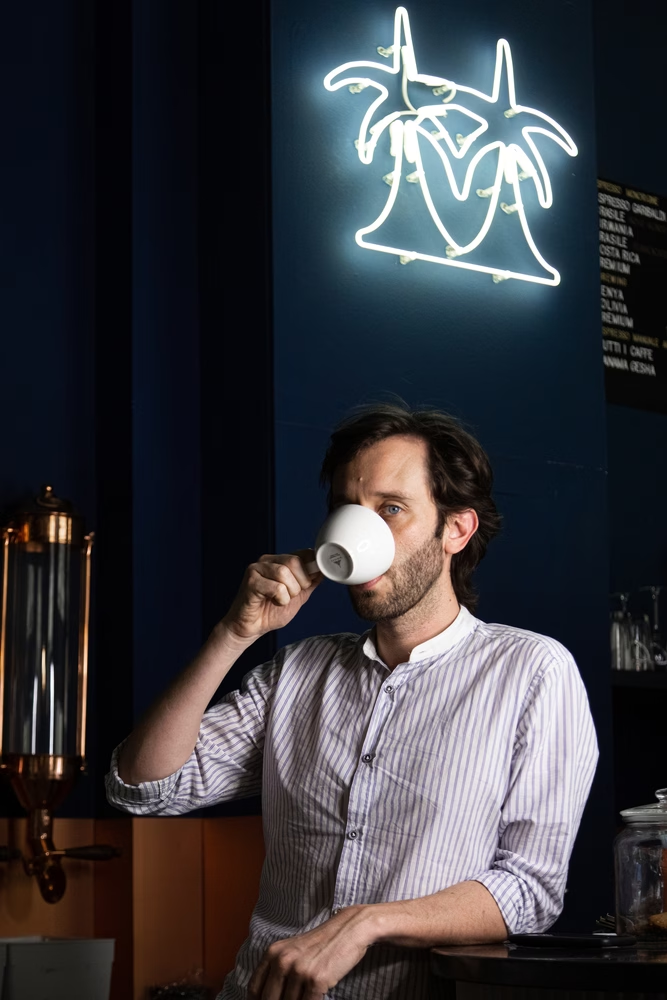


Isabelle Mani: How has the Italian specialty coffee market evolved over the past seven years? How have consumers responded to specialty coffee, and what do you see for the future of the sector?
Carlos: The specialty coffee market in Italy has grown significantly in recent years, particularly in cities like Milan and Rome. Back in 2017, we were one of the first three specialty coffee shops in Milan and the city’s first small-batch specialty roastery. Initially, we had to educate the consumer, as the market was virtually nonexistent.
I see a bright future for specialty coffee in Italy. Some key players have already consolidated, while smaller ones are still finding their way. The rise of specialty coffee culture has been driven by growing consumer interest and professionalization within the industry.
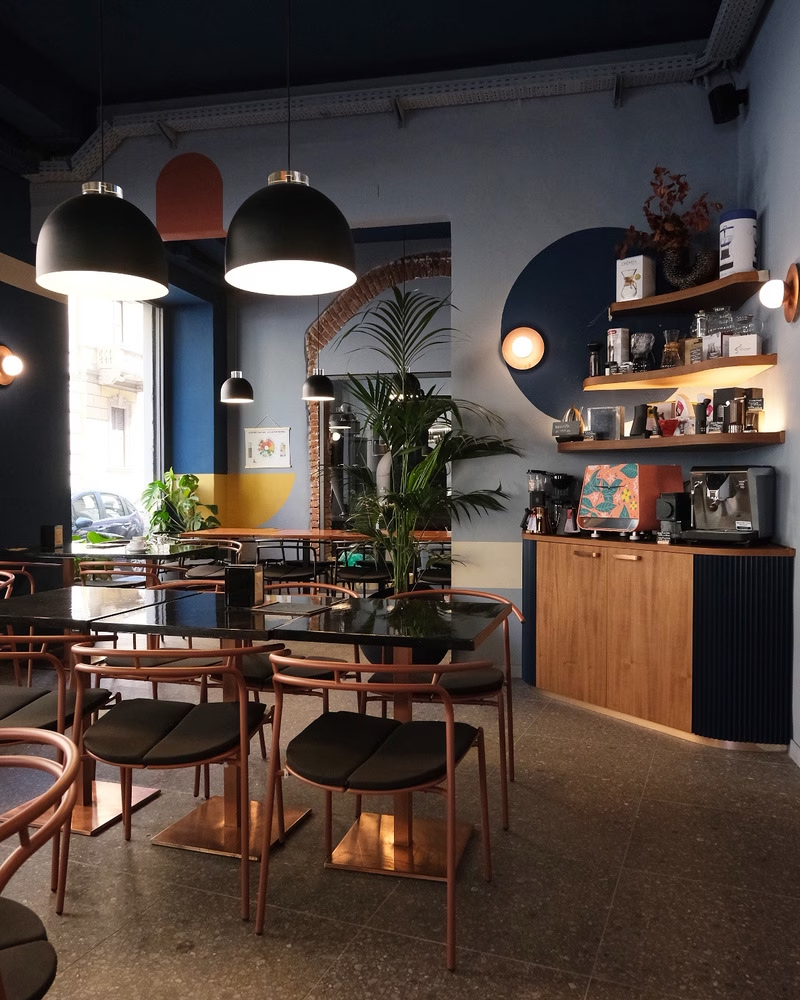


How did consumers in Milan embrace Cafezal? What led to the transition from a single location to a chain? How did this growth impact your business and your entrepreneurial vision?
We were pioneers in Milan and, to some extent, in Italy. We’ve always been very clear about our proposal and have never compromised on coffee quality. At the same time, we learned that local habits matter tremendously. Milanese consumers are deeply attached to tradition, from classic pastries like brioche (referred to as ‘cornetto’ in Southern Italy) to the speed and warmth of service. We incorporated these cultural elements into our brand while maintaining a balance between tradition and innovation.
The expansion of Cafezal happened naturally, driven by the recognition of our work and the growing demand for specialty coffee- we continue to respect local culture while pushing the industry forward.
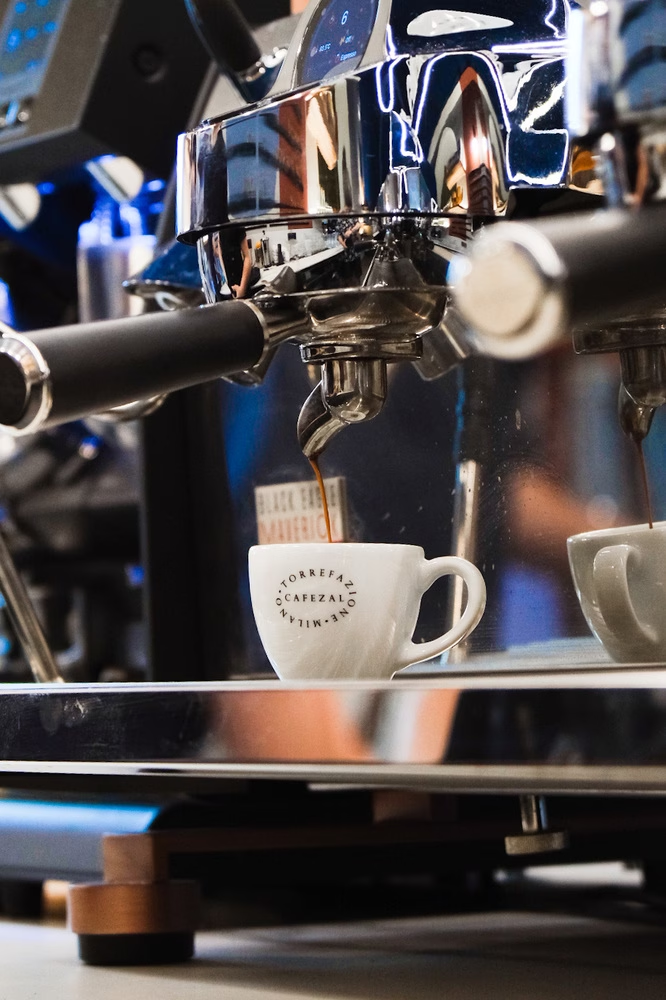


Baristas play a crucial role in shaping the customer experience at Cafezal. How do you view their role in upholding the craft, engaging with customers, and maintaining respect for Italy’s deep-rooted coffee culture?
Baristas are fundamental to what we do. They are the final point of contact with our customers. Because of our visibility, we receive a large volume of job applications. Every week, we get three or four resumes from baristas—both Italian and international—who have various levels of experience but want to work seriously with coffee.
Our service approach is very Italian: fast-paced, attentive, and educational. We focus on strong customer engagement, ensuring that service is personalized and never indifferent.
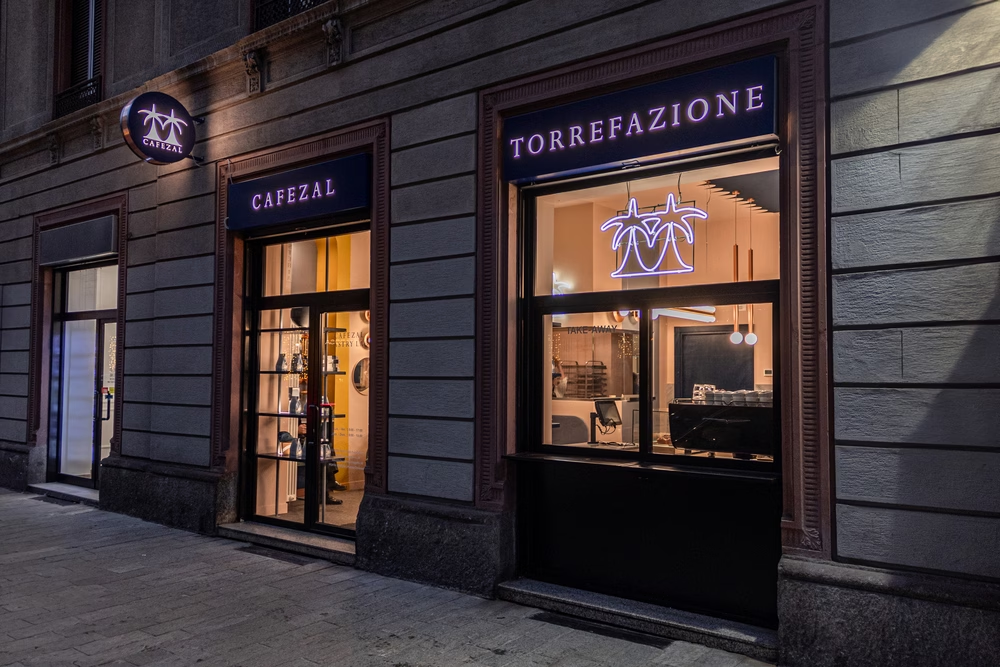


Who are Cafezal’s main customers? What is the balance between locals and expats? How do you see Cafezal’s role as a social, work, and study space?
Our customer base is evenly split between locals and tourists, depending on the location. Some of our cafés see more tourists, while others cater primarily to Milanese customers. This allows us to diversify our offerings: Locals tend to prefer espresso, whereas tourists often opt for filter coffee, flat whites, or coffee-based drinks. We also incorporate Brazilian, Portuguese, and Latin American influences into our menu, creating an inclusive and welcoming environment.
In this sense, do you think a more inclusive, hospitality-driven approach is more effective than focusing on ‘specialty coffee’ branding?
Cafezal takes a very inclusive approach to specialty coffee. We don’t believe in being exclusive or restrictive—our goal is to welcome people into our cafés and introduce them to great coffee in a way that feels natural and approachable.
Some specialty coffee businesses impose rigid standards, like banning sugar or limiting service to certain brewing methods. That’s not our philosophy. We want customers to enjoy our coffee, regardless of their level of expertise. This democratic approach has been a key factor in our growth and success.
ABOUT THE AUTHOR
Isabelle Mani (she/her) is a writer, journalist, and communicator specializing in the international coffee industry. Since 2017, she has focused on writing articles and features for various international coffee news outlets. Isabelle has traveled to coffee-producing countries such as Colombia, Kenya, Rwanda, China, and Brazil to study and research coffee. She holds training certifications from the Specialty Coffee Association (SCA) and the Coffee Quality Institute (Arabica Q Grading).
Subscribe and More!
As always, you can read Barista Magazine in paper by subscribing or ordering an issue.
Read the August + September 2025 Issue for free with our digital edition.
For free access to more than five years’ worth of issues, visit our digital edition archives here.
Source: Barista Magazine



